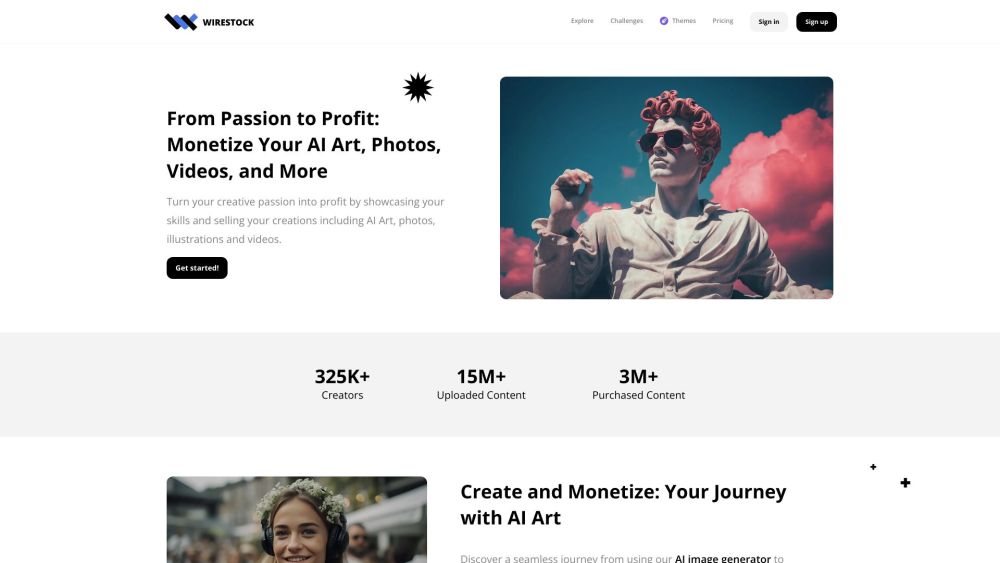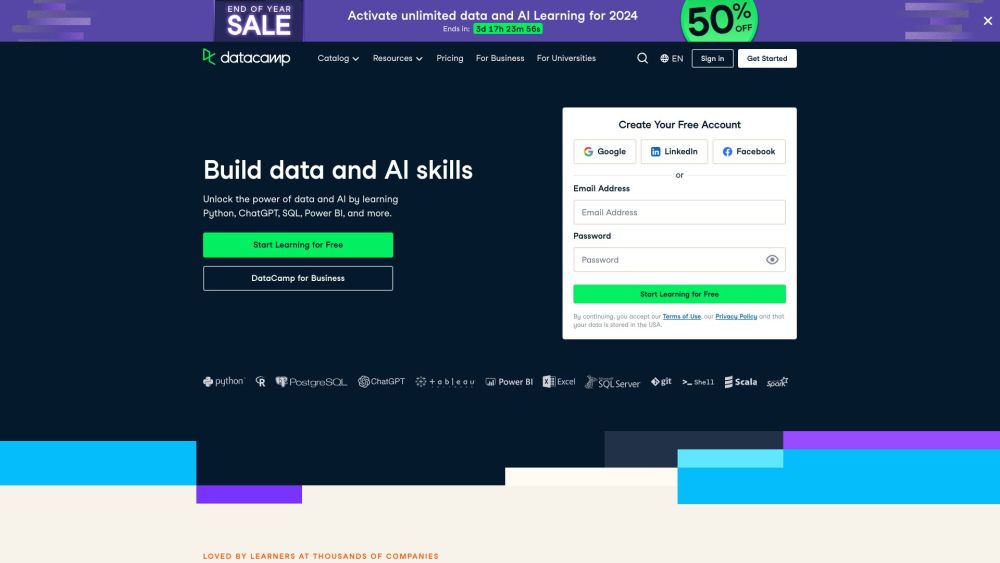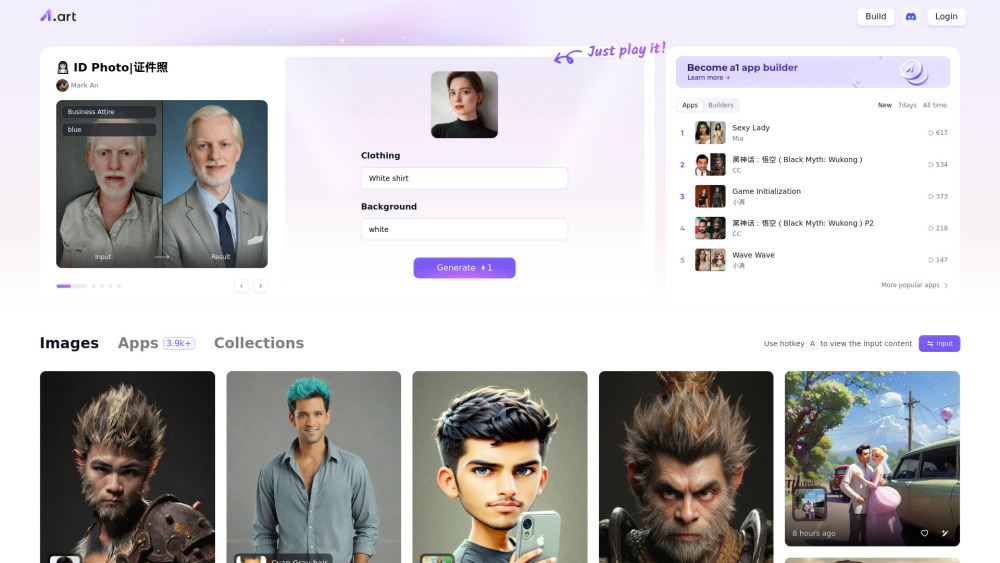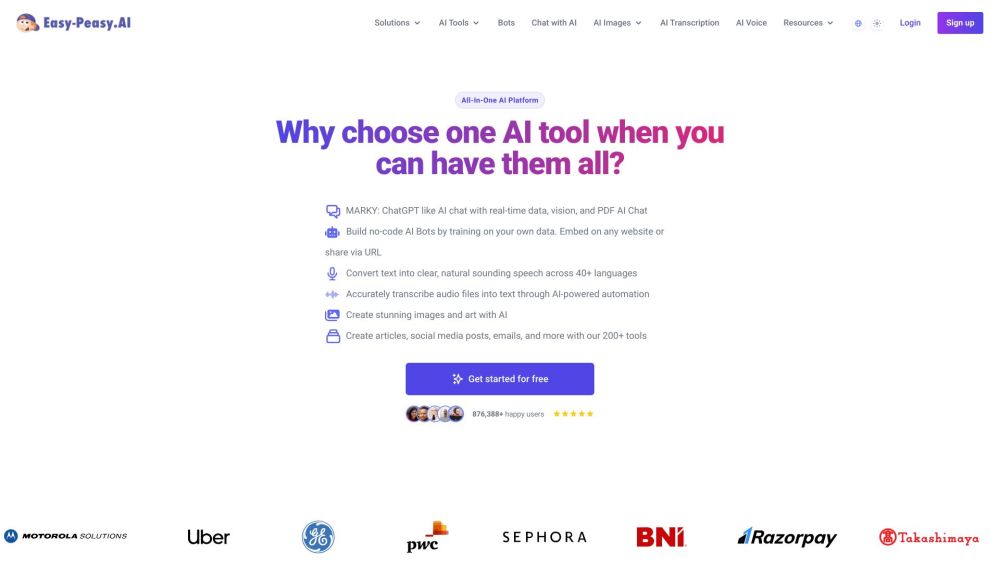In November, Adam D’Angelo became embroiled in one of the most significant controversies in the tech sector. The OpenAI board — overseeing a $80 billion startup at the forefront of artificial intelligence — unexpectedly dismissed its CEO, Sam Altman, only to reinstate him days later. D’Angelo was among the board members who voted for Altman’s removal and is still part of the board that reinstated him. Remarkably, he was the only original member to retain his position during the board's subsequent restructuring.
This turbulent period for OpenAI was compounded for D’Angelo, as his own company, Quora, made significant strides in AI initiatives simultaneously.
Quora, the popular crowdsourced question-and-answer platform that D’Angelo co-founded and heads as CEO, was developing its AI platform while also raising funds — securing a $75 million round that valued the company at $425 million, according to PitchBook. In February 2023, the company launched Poe (short for Platform for Open Exploration), which enables users to ask questions of various chatbots, allows developers to create their own bots, and features a monetization program similar to OpenAI’s GPT Store.
Quora's fundamental Q&A service faces tough competition as well. Major search engines like Google and Bing began employing AI to deliver more dynamic results and respond to inquiries. In a landscape where tools like ChatGPT and Perplexity are easily accessible, Quora must navigate the challenge of maintaining its relevance as a trusted platform for answers. More importantly, does the audience still prioritize crowdsourced Q&A?
For D’Angelo, these challenges are central to his vision for AI — an essential resource that empowers individuals to access the collective knowledge of the internet. A noteworthy figure in tech for years, D’Angelo has long pursued methods to harness this vast reservoir of knowledge. Having been friends with Mark Zuckerberg in high school, he and Zuckerberg created Synapse — a digital music recommendation service that reportedly turned down acquisition offers from Microsoft. He later became Facebook's CTO and eventually co-founded Quora.
I recently spoke with D’Angelo about the current landscape of AI, the intricacies of building and nurturing a developer community, and the evolving role of humans in sharing and accessing knowledge. Here are some key takeaways from our discussion:
Humans Outshine AI — For Now
Despite the rampant excitement surrounding AI, D’Angelo noted that it hasn’t dramatically altered the quest for information. Quora continues to see record user engagement, though D’Angelo did not reveal the specific figure behind last July's 400 million monthly active users.
Notably, there exists a connection between Quora's founding mission and D’Angelo’s passion for AI. Speaking with David George, a general partner at a16z, he expressed that he gravitated towards social networking as a precursor to developing AI, which was complex at the time. He perceived social networks as a means to achieve a similar goal: uniting people to facilitate the sharing of news, entertainment, and information.
D’Angelo initially explored this notion at Facebook, ultimately founding Quora to harness social networks as platforms for answering questions. With the rise of AI, that dynamic is shifting.
“In earlier days, humans were the answer providers. You could pose a question like, ‘What is the capital of California?’ and a human would respond. Now, AI can readily provide that information,” he explained.
However, D’Angelo maintains that AI, as it stands, cannot answer all questions, which preserves significant value for human knowledge.
“Quora’s foundation rests on the idea that humans possess knowledge that isn’t documented online. AI will never have access to that,” he emphasized. He also pointed out AI's current propensity for inaccuracies, complicating its reliability, regardless of advancements addressing these issues.
Empowering Developers on Poe
Following a closed beta phase, Quora rolled out Poe to all users last year. The platform now features various tools for creating and browsing bots within its marketplace.
This dual-access model benefits consumers and developers alike. Users can engage with a range of models and bots, while developers can connect with millions of users without the complexities of distributing across platforms. Developers earn on Poe through referral fees when a user subscribes to Poe Premium via their bot or via a pay-per-message system based on usage.
Poe resembles OpenAI’s ChatGPT and the GPT Store in function but faces similar challenges. The ease of making bots can overshadow individual developers’ offerings. According to D’Angelo, Poe has already amassed a million bots, while ChatGPT boasts around three million custom GPTs; for context, it took Apple’s App Store over five years to reach a million apps.
Both Poe and GPT Store grapple with issues like spam, similarly named bots, and copyright-related claims. Poe’s new functionality allows users to converse with multiple bots in a single interaction — adding layers of choice yet also creating clutter.
Despite these challenges, D’Angelo expressed Quora's commitment to helping developers establish sustainable incomes through enhanced bot visibility.
“We aim to support developers in earning a living from creating AI bots and covering their costs,” he stated. “Introducing features like the pay-per-message model is a starting point. Improving our recommendation system is also essential for helping users discover high-quality bots.”
No Ads on Poe, For Now
While Poe continues to grow, it remains smaller than ChatGPT. Market analysis suggests Poe has around 4 million monthly active users in the U.S. (iOS and Android) and 3.1 million globally (Android only) compared to ChatGPT's staggering 100 million weekly users.
D’Angelo affirmed that Quora will forgo advertisements, focusing instead on generating revenue through Poe’s $19.99 monthly subscription. This contrasts with competitors like Perplexity and Bing Search, which include ads.
Although Quora did not disclose any financial specifics, data from Sensor Tower indicates that Poe has generated $7.3 million from subscriptions since its launch, translating to close to 40,000 paid users — a contrast to ChatGPT’s over 1 million paying subscribers.
Expanding AI Tools for Quora
While emphasizing the significance of human input, Quora is already testing AI-generated answers. The platform presents AI-sourced responses for certain questions, directing users to interact with Poe for follow-up queries.
D’Angelo shared that Quora employs various rating systems for different human responses and is currently evaluating user feedback on AI-generated content.
“My ambition is for AI-generated answers to receive fair ratings, ranking above human responses only when they provide more utility,” he noted.
He also aims to avoid categorizing Quora as merely an “answer engine.”
“Quora isn’t just an answer engine; that implies solely AI-generated responses. It truly revolves around human knowledge, with AI serving as an enhancement,” he clarified.
Additionally, Quora is developing AI tools that will assist users in formulating answers, with a forthcoming feature enabling users to create images based on their responses. They’re also working on tools to detect bots and automation misuse on the platform, although D’Angelo withheld specifics, promising to inform potential violators of any system-gaming attempts.
D’Angelo acknowledged recent criticism regarding declining answer quality on Quora, suggesting that low-quality responses are gaining visibility, thus skewing perceptions. However, he expressed confidence in AI’s capability to sift through answer quality disparities, yielding promising early results.
Quora's Relationship with OpenAI
D’Angelo chose not to comment on the OpenAI situation, stating, “I can’t discuss that right now. I represent Quora.” However, he does not view OpenAI as competition, given the latter's broader ambitions.
“While there is some overlap in user functionality between the GPT Store and Poe, it’s minimal compared to their overall mission of building AGI [Artificial General Intelligence]. Quora is focused on making AI products accessible, including those from OpenAI,” he remarked.
He characterized Quora as a significant customer of OpenAI, anticipating deeper collaboration rather than rivalry.
“OpenAI is a vital supplier of models for Poe, and we invest considerably in partnering with them,” he added.
While D’Angelo mentioned that Quora allocates “tens of millions” to developers on Poe and external model providers, he refrained from detailing how this compared to OpenAI's compensation.
At present, Quora lacks data licensing agreements with major firms and isn't considering an independent model development.
“We’re not rushing to license our data. We are committed to respecting our rights and those of our users. With much uncertainty in the AI landscape, we prefer to remain cautious,” he concluded.
The company is fresh off a funding round and is concentrating on enhancing AI capabilities across the board while striving for revenue growth in existing offerings. D’Angelo indicated that Quora aims for an IPO “eventually,” but it’s not the current priority.





